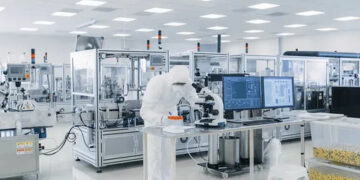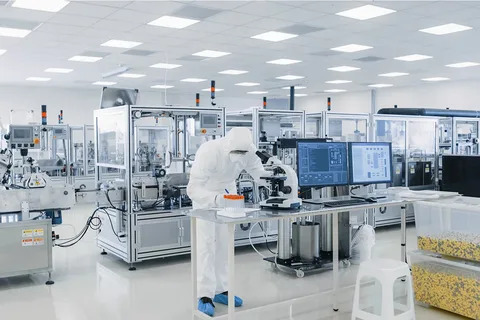In the realm of chemical production, ensuring quality and safety is of paramount importance, especially when the chemicals produced are used in sensitive industries such as pharmaceuticals, biotechnology, and food production. This is where GMP chemical manufacturing comes into play. Good Manufacturing Practice (GMP) refers to a system of guidelines and regulations that ensure products are consistently produced and controlled according to quality standards. GMP chemical manufacturing, therefore, involves adhering to these rigorous standards to produce high-quality chemicals that meet the stringent requirements of various industries. As the demand for precision and safety in chemical production continues to rise, GMP chemical manufacturing has become an indispensable aspect of the chemical industry.
Understanding GMP Chemical Manufacturing:
GMP chemical manufacturing is a specialized process that is governed by a set of strict regulations designed to ensure the safety, quality, and efficacy of chemical products. These regulations are established by governmental bodies such as the U.S. Food and Drug Administration (FDA) and other international regulatory agencies. The primary aim of GMP is to minimize the risks involved in chemical production, such as contamination, errors, and deviations from the specified manufacturing process. By adhering to GMP guidelines, manufacturers ensure that their products are safe for use and meet the quality standards required by the industry.
The process of GMP chemical manufacturing begins with the selection of high-quality raw materials. Manufacturers must ensure that all materials used in the production process meet strict quality standards and are sourced from reliable suppliers. Once the raw materials are selected, they are subjected to rigorous testing to verify their purity, composition, and suitability for the intended application. This testing is carried out in specialized laboratories equipped with advanced analytical tools and technologies.
During the production process, GMP guidelines dictate that manufacturers must maintain detailed records of each step, including the handling of raw materials, the manufacturing process itself, and the storage and transportation of the final product. This documentation is crucial for ensuring traceability and accountability, allowing manufacturers to identify and address any issues that may arise during production. In addition to documentation, GMP chemical manufacturing requires the use of specialized equipment that is regularly maintained and calibrated to ensure consistent performance.
Applications and Benefits of GMP Chemical Manufacturing:
GMP chemical manufacturing is critical in industries where the quality and safety of chemical products directly impact public health and safety. In the pharmaceutical industry, for instance, GMP compliance is mandatory for the production of active pharmaceutical ingredients (APIs), excipients, and other chemical components used in drug formulation. The stringent regulations ensure that the chemicals used in medications are of the highest quality, free from contaminants, and produced under conditions that guarantee their safety and efficacy.
The food and beverage industry also relies heavily on GMP chemical manufacturing. Chemicals used in food production, such as preservatives, flavorings, and colorants, must be produced under strict GMP guidelines to ensure they are safe for consumption. Any deviation from these standards could result in contamination, posing serious health risks to consumers. By adhering to GMP, manufacturers in the food industry can maintain the integrity of their products and protect public health.
Another industry that benefits from GMP chemical manufacturing is biotechnology. The production of chemicals used in biotechnological applications, such as cell culture media, reagents, and buffers, requires adherence to GMP standards to ensure that these products do not introduce contaminants or other variables that could compromise experimental results. In this context, GMP chemical manufacturing plays a crucial role in supporting scientific research and development.
Conclusion:
In conclusion, GMP chemical manufacturing is an essential aspect of the chemical production industry, ensuring that products are manufactured according to the highest standards of quality and safety. By adhering to GMP guidelines, manufacturers can minimize risks, maintain product integrity, and ensure that their chemicals are safe for use in a variety of industries, including pharmaceuticals, food production, and biotechnology. As the demand for high-quality chemicals continues to grow, the importance of GMP chemical manufacturing will only increase, solidifying its role as a cornerstone of modern chemical production. Ensuring that every step of the manufacturing process meets GMP standards not only protects consumers but also enhances the reputation and reliability of chemical manufacturers in the global market.
























































